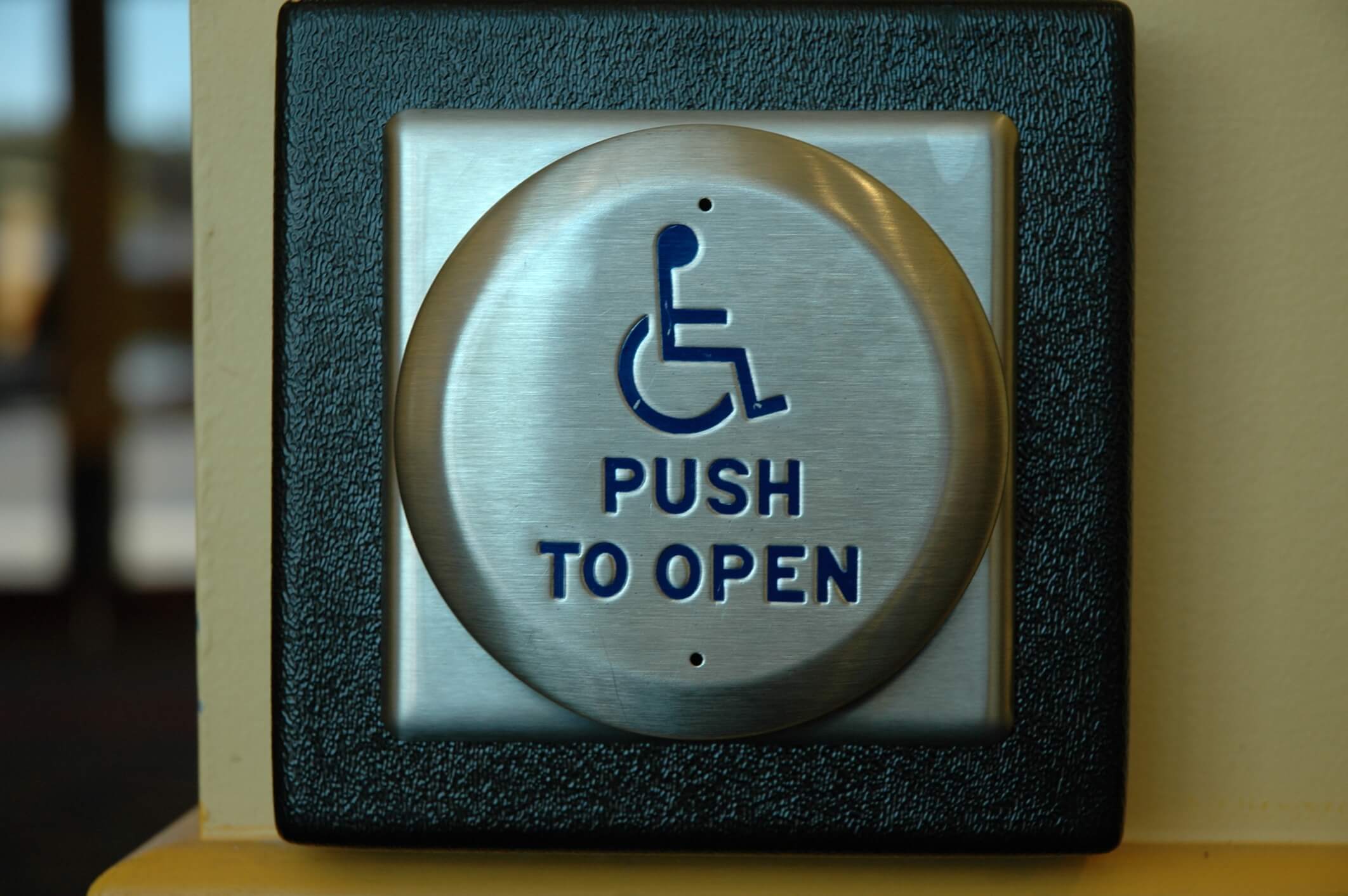Creating an environment that is accessible to everyone, regardless of disability, should be a priority for any service provider, whether that be public or private. The idea of inclusivity does not just stem from a sense of morality, but it is also a legal requirement. There are a variety of ways to make something accessible, but a key starting point is discovering how the person is going to enter the service. That’s why DDA door systems were created.
A DDA System is a system which modifies and automates a new or existing door to make it accessible for disabled individuals. These were created and became a typical feature for a wide range of properties in line with the Disability Discrimination Act 1995.
A DDA compliant door is a door that is effortless to use, with an easily identifiable point of use, usually a button. They also have certain set standards of width and height ensuring wheelchair users and any other auxiliary aids can enter without any restrictions or difficulty.
What is the Disability Discrimination Act (DDA) 1995?
The Disability Discrimination Act 1995 came into effect to protect disabled individuals and to ensure they are able to access all services an abled-bodied person can access. This act set the standard of accessibility and applies to a variety of areas including: education, employment, transport, provisions of goods and public functions.
DDA compliant doors are often a crucial tool to help meet the DDA standards. DDA systems can be used for every area the act covers, and can be a momentous step in turning an inaccessible building into one that can be accessed by anyone. These doors are particularly useful for buildings with high amounts of frequent foot traffic, such as educational buildings, public functions or transport.
What are the Benefits of DDA Systems?
Undoubtedly, the main benefit of DDA Systems is the ability to ensure anyone can access a building or service regardless of disability. However, that is not their only benefit. DDA systems are designed to be easy to use, and easy to install. The systems ensure that doors can be used by anyone, regardless of their level of mobility. The installation process is straightforward too. This guarantees there will be no limitations to what business or service is able to acquire them.
To have a DDA system installed, it does not require you to completely remove and replace any existing doors. Any automatic door can be easily adjusted to be DDA compliant. Even manual doors can be adjusted, though the process may take a little more time, it is completely possible. This helps reduce the time, effort and cost of these doors.If you’re interested in upgrading an entrance to be DDA compliant, then Bee Tee Alarms can help.
Our DDA systems can be installed onto any existing doors to provide easy accessibility for all. We have an experienced team of engineers to supply and install a range of access and entry systems in Northampton, Milton Keynes and Birmingham. If you want to enquire about a DDA System, or simply learn more, then contact us at BeeTee Alarms today.




